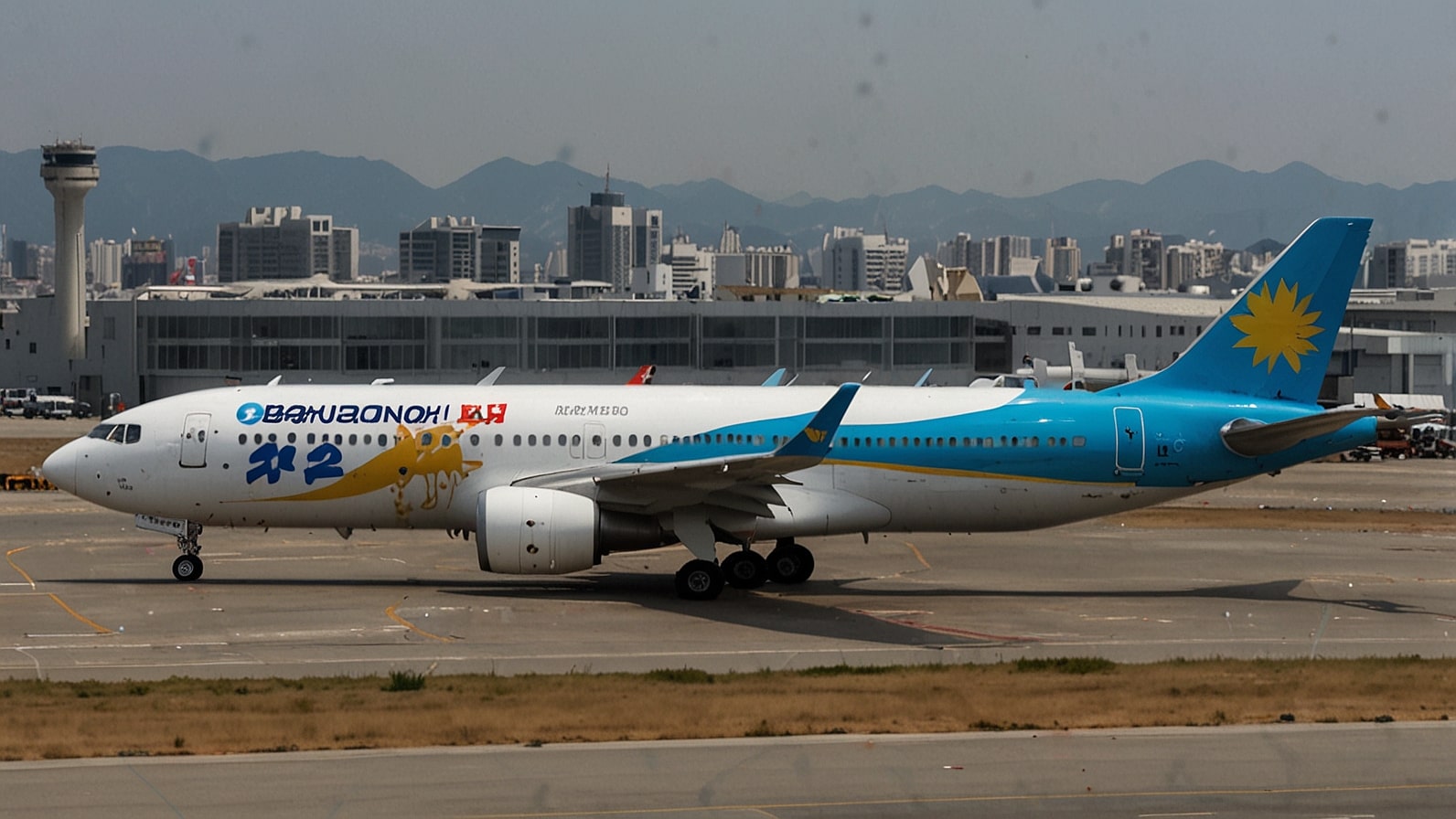
Air Busan Has Issued a World-First Ban on Power Banks
In a remarkable move that has hogged the global headlines, Air Busan, a top South Korean low-cost airline, announced on August 31, 2025, a world-first blanket ban on the use of power banks on all its flights.
This new policy, which takes effect immediately, bans passengers from bringing portable chargers in both checked and carry-on baggage, redefining aviation safety in light of the increasing hazards posed by lithium-ion batteries. This courageous choice establishes Air Busan as a vanguard in prioritising passenger safety, underscoring the implications that may reverberate in the global landscape of aviation norms and news headlines.
Why Air Busan Did This Radical Action
The declaration, made at a high-profile press conference in Busan, highlights the airline’s dedication to safety in the wake of a surge in battery-related incidents. Air Busan CEO Kim Ji-hoon said, “Our passengers’ safety is absolute and non-negotiable. With the rise in incidents of lithium-ion battery failures, we are taking decisive action to mitigate risks.
The move follows a series of worldwide incidents, including a near-disastrous fire on a power bank during a flight from Seoul to Tokyo earlier this year, which led to an emergency landing. Although the incident did not directly involve Air Busan, the incident further contributed to the increased worries in the aviation industry in South Korea, which is known for its rigorous safety standards.
Lithium-ion batteries – the heart of power banks – are notorious for their tendency to overheat or catch fire under overcharging, physical damage or manufacturing defect conditions. Aircraft safety data indicate a 35% increase in battery-related alerts on flights worldwide over the last two years.
The trend was also replicated and confirmed by Airbus internal audits, which reported several instances of overheating devices detected by cabin crews. By completely prohibiting it, the airline aims to eliminate such threats and establish a new standard for the industry.
The Extent of the Ban and Its Short-Term Effect
Unlike other airlines that limit the capacity of power banks (for example, the maximum capacity allowed in the cabin, up to 100Wh), Air Busan’s policy is absolute. No power banks, regardless of size or brand, are allowed on board, which is the most stringent rule in place.
Using a fleet of Boeing 737s and Airbus A320S, Air Busan operates millions of passengers every year on short-haul flights and domestic routes around Asia, including Japan, China, and Thailand. The ban affects a wide range of travellers, from business travellers to tourists, and has prompted a rapid response across social media and travel communities.
Passengers’ reactions are polarised. With some five-hour flights, we’re sure many travellers are frustrated by the lack of power banks, as one user on X shared: “Nightmare: For digital nomads, that is bad news!” Otherwise, some were in favour of the move, mainly families and safety advocates.
One mother in Busan wrote in an online comment, “I would rather charge my phone at the airport than have a fire in midair.” In response to such concerns, Air Busan has enhanced in-flight amenities by providing USB charging outlets at each seat and free charging stations at convenient locations, such as Gimhae International Airport.
A Chain Reaction throughout the Aviation Industry
Airbus Policy: Air Busan’s transformative policy is poised to ignite a seismic shift in the international aviation industry. Industry analysts expect rivals, particularly in Asia’s highly competitive low-cost market, to monitor the ban’s results closely.
European and U.S. airlines are under pressure to respond, and carriers such as Jeju Air and Cebu Pacific have indicated they are reviewing their own battery policies. Air Busan’s data has the potential to lead to a revision of global standards, as the International Civil Aviation Organisation (ICAO) may re-evaluate its guidelines for safety in the event of a dramatic reduction in safety incidents.
The ban is also an economic one. Power bank sales, a multi-billion-dollar industry, could suffer a dip in parts of the world serviced by Air Busan. Many battery manufacturers, such as Anker and Xiaomi, are now rushing to create “flight-safe” versions, including solid-state batteries that pose a lower risk of fire. Meanwhile, for South Korea’s tourism industry, one of Air Busan’s revenue sources, the disruption is expected to be minimal, as most visitors are likely to adjust within a short period.
Power Bank-Free Advent
To take the edge off, Air Busan has launched a jarring awareness campaign, offering useful tips through its app and website. Passengers are therefore asked to fully charge their devices before boarding the aircraft, use in-plane power outlets, or purchase devices with longer battery life.
As part of its program to promote safer charging technology, the airline has partnered with technology giants Samsung and LG to offer discounts on compliant accessories. Solar chargers and biodegradable battery packs are also gaining popularity as environmentally friendly alternatives.
Airports are stepping up, too. Gimhae and Incheon International Airports are seeking to expand their charging infrastructure with wireless pads and fast-charging kiosks. By eliminating the need for personal power banks, these innovations have the potential to rewrite the narrative of travel destinations worldwide, aligning with sustainability initiatives and mitigating the challenge of e-waste.
What’s in Store for Aviation Safety?
As Air Busan’s history ban approaches its conclusion on August 31, 2025, it stands not just as a policy shift but as a beacon of the future of air travel in a technology-driven society. While some critics raise concerns about its intrusion on passenger privacy, enthusiastic advocates believe it is a natural progression in an industry where safety is of utmost importance. The airline has committed to tracking the ban’s effectiveness, including quarterly updates on its effectiveness and how to respond to passenger feedback.
This trend may well usher in a new era of aviation security, forcing airlines and regulatory authorities to reassess the digital security trade-off. As travellers navigate a new reality without power banks, the question arises: will this trend reverberate through other airlines, or will Air Busan remain the pioneering force? For now, skies over Busan are a safer setting, setting a precedent that will reshape international air travel.



 Bitcoin
Bitcoin  Ethereum
Ethereum  Tether
Tether  XRP
XRP  USDC
USDC  Solana
Solana  TRON
TRON  Lido Staked Ether
Lido Staked Ether  Cardano
Cardano  Avalanche
Avalanche  Toncoin
Toncoin